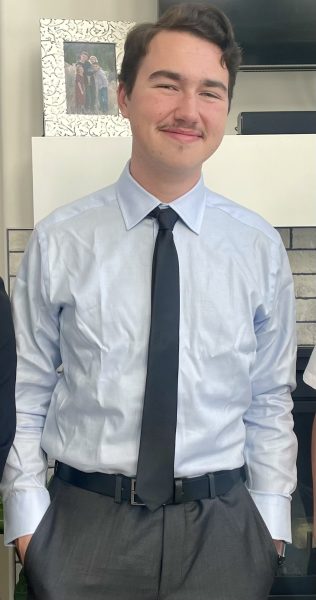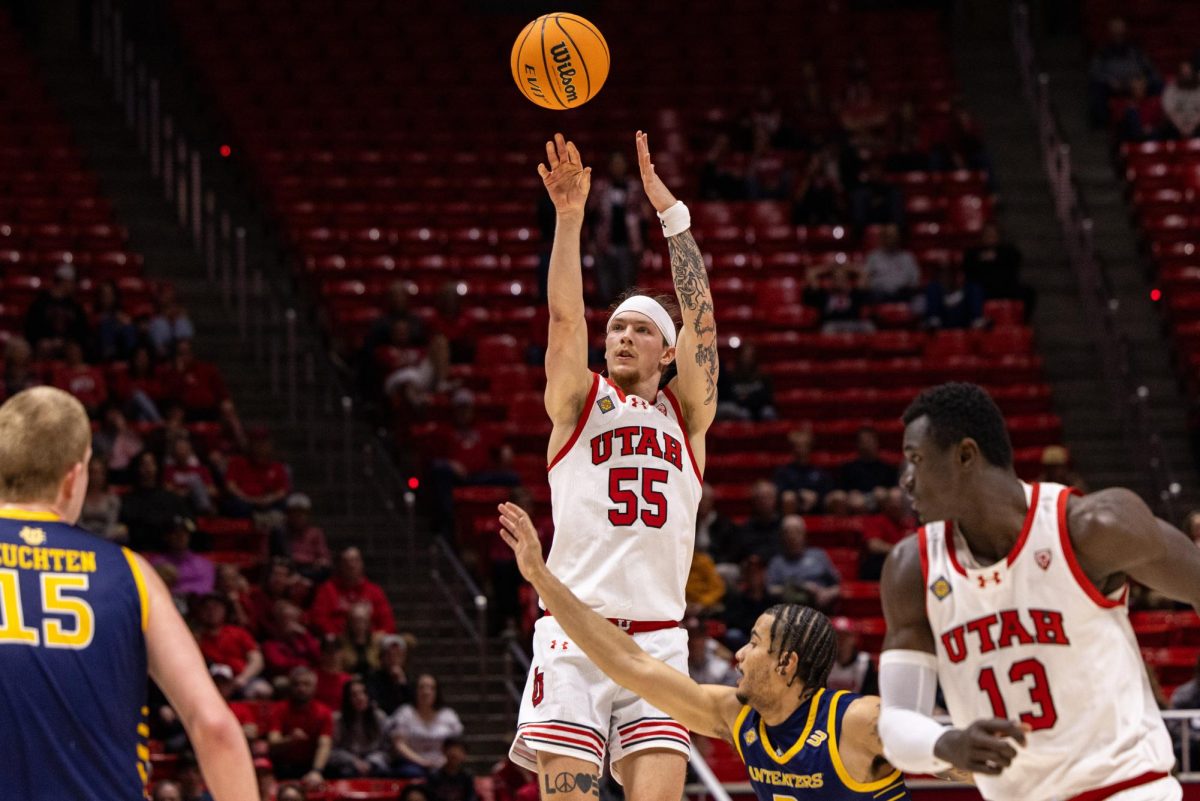News for U — Episode 8: Edible Campus Gardens
April 17, 2023
Click here to read Kayleigh’s story!
Emma Ratkovic 0:03
Hello, and welcome back to News For U, the Daily Utah Chronicle news podcast. I’m Emma and on today’s episode of the podcast, we are going to talk about the edible campus gardens. News writer and special projects managing editor Kayleigh Silverstein has met with us today to discuss the campus gardens. Hi, Kayleigh, thanks so much for joining us again on the podcast.
Kayleigh Silverstein 0:25
Hi, thank you so much for having me.
Emma Ratkovic 0:27
Kayleigh has been on our podcast before to discuss the print issue of the Chronicle. Kayleigh, can you explain a little bit about yourself and what you do here at the Chronicle for new listeners?
Kayleigh Silverstein 0:37
I’m the special projects managing editor, which means that I’m in charge of print production and a few other things. And I also have been a news writer since my freshman year and now I’m a senior majoring in sociology and Spanish.
Emma Ratkovic 0:48
You recently wrote a story on the edible gardens here at the U. Can you tell us a little bit more about the story?
Kayleigh Silverstein 0:53
My story focuses on how the edible campus gardens are rooted in education, community and food justice. I interviewed three people who are involved in the gardens. I interviewed Gabrielle James, they are the garden program coordinator with the University of Utah Sustainability Office and so they oversee the edible campus gardens program. They do everything from ordering seeds to coordinating volunteers. They just oversee the whole operations of the garden. Then I also interviewed two people who work in the gardens, Jacie Lee, who is a junior studying social work, and she’s been a garden steward at the edible campus garden since fall 2022. So she works in the gardens, she tends to them, she helps people out. She works with different classes that come through the gardens. And then I also interviewed Cam McVeigh, who’s an environmental and sustainability studies major and they are an intern at the Sustainability Office. They originally got involved in the program by taking the organic gardening class and they felt that it brought them a sense of community and they really loved working in the garden. So that’s kind of what I focused on in my story.
Emma Ratkovic 1:51
Can you explain when the garden started?
Kayleigh Silverstein 1:53
Yeah, they actually started in 1996 as a lab space in the Sill Garden for a biology class, and the class was called ecological gardening. And then in 2002, they added the Pioneer Garden, and the biology class eventually became organic gardening, which is still a class offered today in the fall. This then led into a student-led program housed in the environmental and sustainability studies major.
Emma Ratkovic 2:15
Kayleigh, can you tell us about the goal behind the gardens’ creation?
Kayleigh Silverstein 2:18
In my understanding, the original goal for the gardens was to facilitate the U’s goals of being a living lab, which means using different parts of campus in academic learning. And then in 2020, members of the program advocated to make the program more food justice-oriented, bringing most of the produce to the Feed U pantry rather than farmers markets or selling it to dining services and things like that.
Emma Ratkovic 2:39
How can students use the gardens?
Kayleigh Silverstein 2:41
Students can use the gardens in a lot of different ways. They can take classes that pair with the gardens, they can conduct research in the garden, they can volunteer, they can sit at the tables and study in the garden and they can also take some of the produce at the Feed U pantry that has grown through the garden. So there’s lots of different ways students can get involved.
Emma Ratkovic 2:57
How is the garden impacting the local community?
Kayleigh Silverstein 2:58
Yeah, that’s a great question. According to the people I interviewed, including two students who have been involved in the gardens and the garden program coordinator, the gardens impact the local community by providing a space for people to get involved in gardening, learning about where food comes from and how it’s grown, as well as contributing to food justice efforts on campus. One student I interviewed recommended simply just walking through the gardens during the season to see how food can be grown in an urban setting and really connect with nature in that way.
Emma Ratkovic 3:27
What classes can students take to get involved in gardening and what research has been done on the gardens?
Kayleigh Silverstein 3:37
There’s an organic gardening class that specifically works with the gardens that’s only offered in the fall, but if students are taking a course that they think pairs well with, kind of, what the gardens offer, they’re encouraged to reach out to the gardens program to set something up. There’s classes from you know, a writing class that goes in and writes during their free period to more specific, tailored classes. There’s also been a variety of different research projects in the gardens but currently, someone is looking into the different levels of composability of certain materials, weighing them every week to see how they break down over time.
Emma Ratkovic 4:03
In your article, you talked about food justice. Can you explain more in-depth about this concept and how the gardens can help with food insecurity?
Kayleigh Silverstein 4:11
College students are a vulnerable population when it comes to food insecurity, meaning it is possible that a college student can lack the necessary resources to obtain food. And according to Boston University, food justice refers to the concept of ensuring “universal access to nutritious, affordable, and culturally-appropriate food for all, while advocating for the well-being and safety of those involved in the food production process.” And it also includes addressing disparities in food access. So the gardens relate to this concept not only because they increase that access through the Feed U pantry but also because they encourage the re-localization of agriculture and allow students to kind of see how and where their food comes from.
Emma Ratkovic 4:47
When will the gardens open and where can students access updates on the garden?
Kayleigh Silverstein 4:53
Yeah, the gardens will reopen during Earth Week, so this coming week, with volunteer shifts starting up again and students can follow along for updates at @sustainableUofU on Instagram.
Emma Ratkovic 5:02
Do you have any final thoughts or comments?
Kayleigh Silverstein 5:04
Just know, the gardens are looking for help, they want volunteers, they want people to come through the gardens and see all the amazing work they’re doing. So yeah, check it out.
Emma Ratkovic 5:12
Thank you so much for joining us on the podcast today, Kayleigh.
Kayleigh Silverstein 5:16
Thank you for having me again! It was a pleasure!
Emma Ratkovic 5:18
Thank you so much for joining us on this week’s episode of News for U. Make sure to tune into a new episode next Monday.
Executive Producer: Theadora Soter — [email protected] | @sotertheadora
Producer: Graham Jones — [email protected] | @grahamcool8
Host: Emma Ratkovic — [email protected] | @eratkovic_news
Guest: Kayleigh Silverstein — [email protected] | @chronykayleigh










